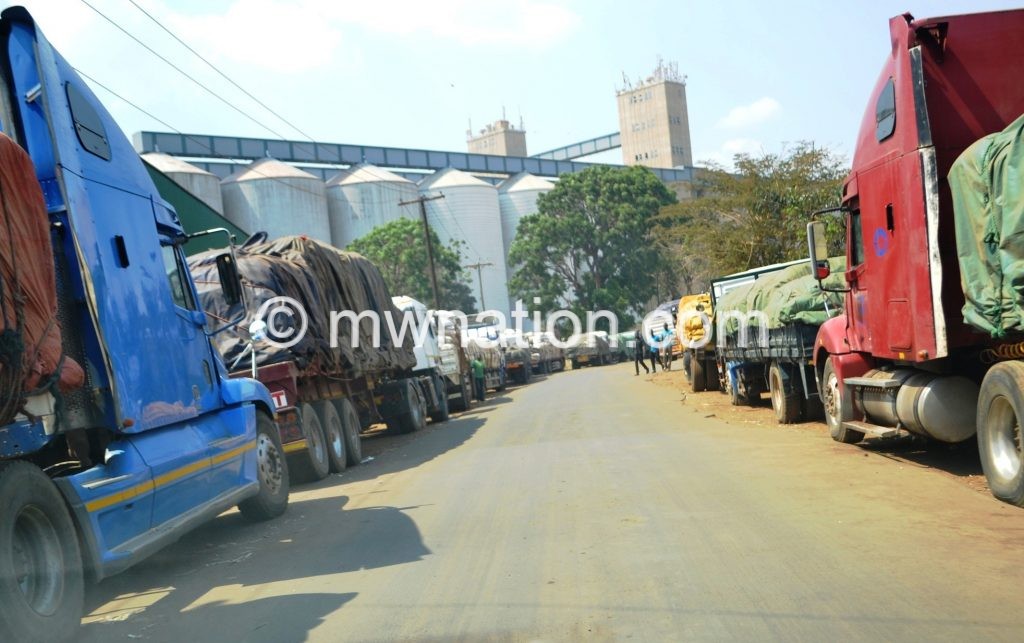Govt breaks up Admarc
Government has split the State produce marketer Agricultural Development and Marketing Corporation (Admarc) into two entities that will exclusively concentrate on commercial and social functions.
In an interview on Thursday, Minister of Agriculture and Food Security Francis Kasaila said there will be Admarc Commercial and Admarc Social.

The decision to separate the two functions comes in the wake of the corporation’s failure—as a commercial body—to favourably compete on the agricultural market; hence, making it a financial burden on government.
Kasaila said government would want to see a clear distinction between Admarc’s own revenue generated from the commercial entity and funding received from the national budget.
He said: “Our thinking is that as a public entity, there should be some responsibilities which are social in nature which government must be paying for using the national budget and those need to be separated from the commercial responsibility.”
However, Kasaila could not provide the nitty-gritty of the exercise referring Weekend Nation to the Public Sector Reforms Management Unit in the Office of the President and Cabinet (OPC).
Admarc is one of the State-owned parastatals in the agricultural sector; others being the National Food Reserve Agency (NFRA), Smallholder Farmers’ Fertiliser Revolving Fund of Malawi (SFFRFM) and the Tobacco Commission (TC) and its oversight functions are provided by the Ministry of Agriculture and Food Security.
On her part, chief director of eforms Seodi White could only say the “actual functional duty” was being done by the Department of Human Resources and Development (DHRD) at OPC.
“My office does not conduct functional reviews. The matter can be reform but it is done by DHRD. They then issue a report to my office and of the minister so I cannot say at what level is the exercise,” she said.
Principal Secretary for DHRD Hilary Chimota did not respond to our questionnaire and phone calls after several attempts.
Admarc acting chief executive officer (CEO) Felix Jumbe said last week the institution has been draining a lot of government resources because of inefficiencies in its operations.
“So Admarc commercial will purely operate like any other commercial competitor that we have,” he said.
Jumbe further explained that Admarc Social would be invoicing government for any social activities it is asked to do.
“By specialising it is anticipated there would be benefits so that in the end Admarc will always register profits and be able to give dividends to government,” he said.
However, according to Jumbe, Admarc will still have one CEO with two deputies responsible for the commercial and social entities.
He said recruitment processes already started in line with the new arrangement.
Admarc was created in 1971 as a statutory corporation with two main portfolios in its functions which were agricultural development and marketing (buying and selling of smallholder produce) and not necessarily to play a social function. Until 1987, it was the sole buyer of smallholder produce.
Over the years, it has recorded dismal performances having failed to provide a stable market for smallholder farmers while being perpetually rescued by government.
A Weekend Nation’s analysis conducted last November indicated government spent over K100 billion during the last five years on purported social responsibility.
These were funds the State produce trader had been receiving from government primarily for procurement of maize while part of it was obtained as loans from commercial banks.
An agricultural economist Thabbie Chilongo observed that in the short to medium-term Admarc shall continue playing its social function, but doubted the sustainability of this service in the long run.
The economist, who is director of Luanar’s Centre for Agricultural Research and Development (Card), stressed that if properly managed the commercial entity could be sustainable.
While describing it as a “very necessary condition but not sufficient”, Chilongo said the commercialisation drive was not on its own a panacea to the sustainability of Admarc.
He said: “For this to succeed, among others, there is need to take away the negative political interferences because by its nature Admarc cannot completely avoid political interference.
“Political interference is probably its number one enemy as it is entrenched in all its functions from recruitment of staff, selling or buying of produce to transportation, just to mention a few. All these will result in Admarc not competing favourably with private sector players,” observed Chilongo.
In January this year, the World Bank demanded a comprehensive plan from government on critical actions to be undertaken to ensure that Admarc performs its expected functions and reduce market distortions.
Speaking in Lilongwe during the launch of Agriculture Commercialisation (Agcom) project, World Bank country manager for Malawi Greg Toulmin observed Admarc’s functional review provided key recommendations that could guide effective reform process.





